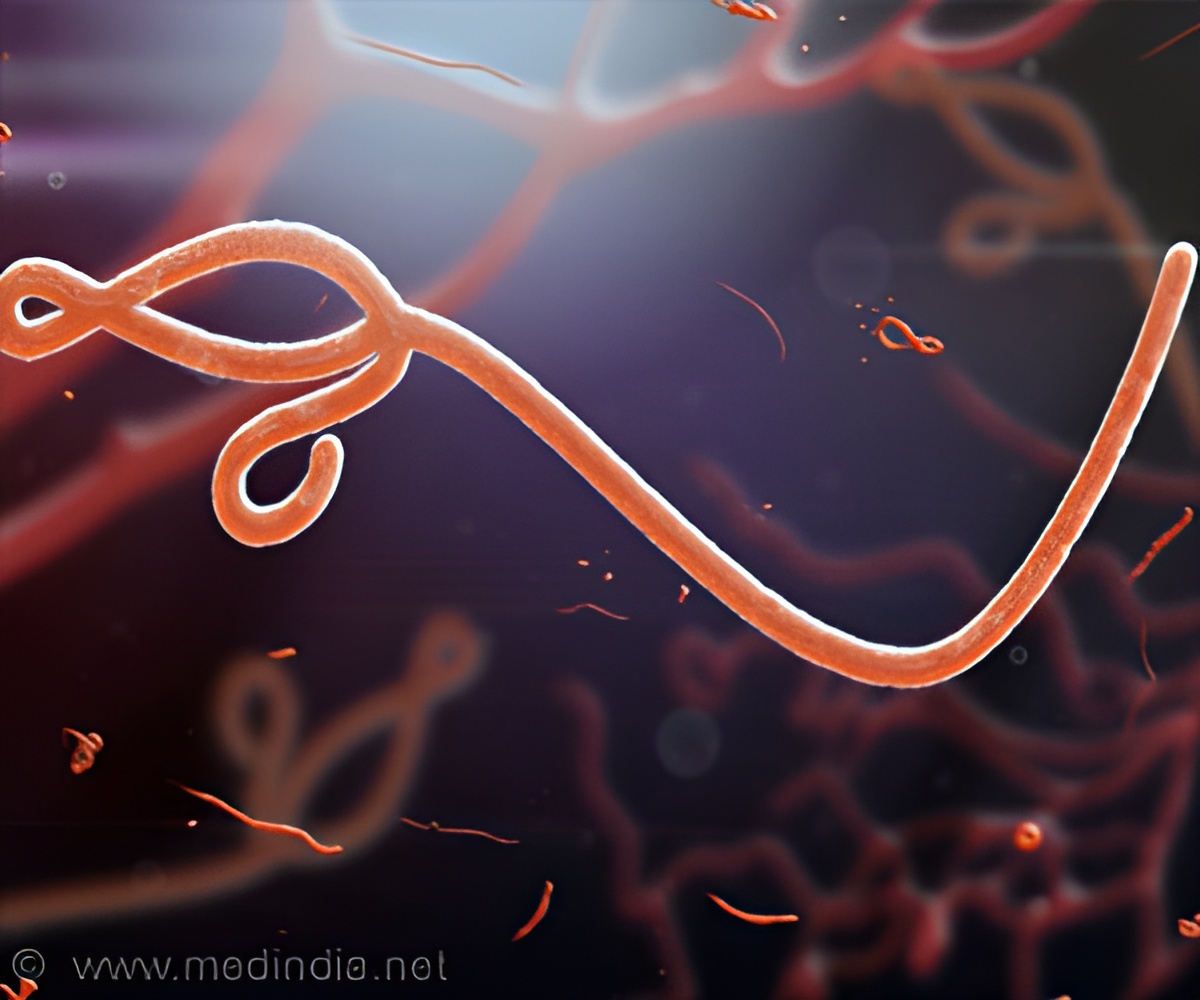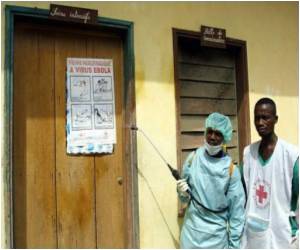Antibodies from one filovirus reacted to other filoviruses for up to 14 years after primary infection.

‘Antibody responses to disease outbreaks extend beyond the primary virus and may impart at least partial immunity to other filoviral infections.’





In their study, the researchers tested serum antibodies collected from survivors between one and 14 years after three separate and well-documented outbreaks, said corresponding author Mohan Natesan, Investigator, Molecular and Translational Sciences, United States Army Medical Research Institute of Infectious Diseases, Fort Detrick. They found that antibodies from the various filoviruses present substantial cross-reactivity-that is, antibodies from one filovirus reacted to other filoviruses-for up to 14 years after primary infection. "Although there are still no clear correlates of immunity, our results suggest that antibody responses to disease outbreaks extend beyond the primary virus, and may impart at least partial immunity to other filoviral infections," said Natesan.
"The broad protein-level and virus-level cross-reactivities that we observed for antibodies from humans years after their recovery from infections caused by Ebola and Marburg viruses indicate that these serological immune responses are long lived and extend beyond the original filovirus exposure," the investigators write.
"In order to examine antibody specificity, we used microarrays containing recombinant antigens from all six species of filoviruses," said Natesan. The microarrays are systems containing tiny fragments of filovirus printed onto miniaturized microscope slides. Each fragment is exposed to antibodies obtained from the survivors of filovirus infection. The strength of each antibody/antigen interaction is determined from the strength of its signal in microarray.
The average fatality rate for Ebola is 50 percent. (Ebola is fairly representative of the other filoviruses.) The disease is highly infectious-via mucus membranes, broken skin, bodily secretions and fluids, as well as through contact with surfaces such as bedding and clothing that are contaminated with these fluids, according to the World Health Organization. Contact with the dead body of a victim can also spread the disease. Healthcare workers have frequently become infected while treating victims when protection protocols were not strictly observed. Patients are infectious as long as virus remains in their bodies.
Advertisement












